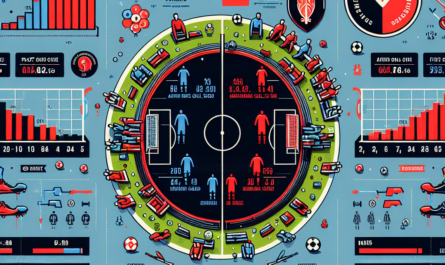The Beautiful Game: An In-Depth Exploration of Football

Football, known as «футбол» in Russian, is more than just a sport; it is a global phenomenon that unites people across continents, cultures, and languages. With its simple rules and minimal equipment requirements, football has become the most popular sport in the world, boasting billions of fans and players. This article delves into the history, cultural impact, and modern developments of football, providing a comprehensive understanding of why it is often referred to as «the beautiful game.»
The Origins of Football
The roots of football can be traced back to ancient civilizations, where various forms of ball games were played. However, the modern version of football as we know it today began to take shape in the 19th century in England. The establishment of standardized rules and the formation of the Football Association in 1863 marked the official birth of the sport.
Early Forms of Football
Historical records suggest that ball games resembling football were played in China, Greece, and Rome. The Chinese game of «Cuju» involved kicking a leather ball through a small opening, while the Romans played «Harpastum,» a game that emphasized physical strength and strategy.
The Codification of Rules
The need for standardized rules became apparent as football gained popularity in England. The Cambridge Rules, developed in 1848, laid the groundwork for the modern game. In 1863, the Football Association was formed, and the first official set of rules was established, distinguishing football from rugby.
The Global Spread of Football
Football’s simplicity and accessibility contributed to its rapid spread across the globe. By the early 20th century, the sport had reached every continent, leading to the formation of international competitions and governing bodies.
FIFA and the World Cup
Founded in 1904, the Fédération Internationale de Football Association (FIFA) became the global governing body for football. The inaugural FIFA World Cup was held in 1930 in Uruguay, setting the stage for what would become the most prestigious tournament in the sport.
Football’s Cultural Impact
Football has transcended its role as a mere sport to become a cultural phenomenon. It has the power to bring people together, foster national pride, and even influence political landscapes. The sport’s cultural significance is evident in events like the World Cup, which captivates billions of viewers worldwide.
Modern Developments in Football
As football continues to evolve, technological advancements and changes in governance have shaped the modern game. From video assistant referees (VAR) to the rise of women’s football, the sport is constantly adapting to meet the demands of a global audience.
Technological Innovations
- Video Assistant Referee (VAR): Introduced to improve decision-making accuracy, VAR has been a controversial yet significant addition to the game.
- Goal-Line Technology: This technology ensures that goals are accurately awarded, eliminating human error in crucial moments.
- Wearable Technology: Devices that monitor player performance and health have become integral to training and match preparation.
The Rise of Women’s Football
Women’s football has experienced tremendous growth in recent years, with increased investment and media coverage. The FIFA Women’s World Cup has become a major event, showcasing the talent and skill of female athletes on a global stage.
Case Studies: Football’s Influence Beyond the Pitch
Football’s impact extends beyond the confines of the pitch, influencing social, economic, and political spheres. Here are a few notable examples:
Football and Social Change
Football has been a catalyst for social change, promoting inclusivity and diversity. Initiatives like «Football for Hope» use the sport to address social issues such as poverty, education, and health.
Economic Impact of Major Tournaments
Hosting major football tournaments can have significant economic benefits. The 2018 FIFA World Cup in Russia generated an estimated $14 billion for the country’s economy, highlighting the financial impact of such events.
Football as a Political Tool
Football has often been used as a political tool, with governments leveraging the sport to promote national unity and international diplomacy. The «Football War» between El Salvador and Honduras in 1969 is a stark example of how football can influence political relations.
The Future of Football
As football continues to grow, the future of the sport looks promising. Emerging markets, technological advancements, and a focus on sustainability are shaping the next chapter of football’s evolution.
Emerging Markets
Countries in Asia, Africa, and North America are investing heavily in football infrastructure and development, signaling a shift in the sport’s traditional power dynamics.
Sustainability Initiatives
Football organizations are increasingly prioritizing sustainability, with initiatives aimed at reducing the sport’s environmental impact. From eco-friendly stadiums to carbon-neutral events, the focus on sustainability is becoming a key aspect of football’s future.
Conclusion
Football’s journey from ancient ball games to a global phenomenon is a testament to its universal appeal and enduring legacy. As the sport continues to evolve, it remains a powerful force for unity, cultural exchange, and social change. Whether through technological innovations, the rise of women’s football, or its influence beyond the pitch, football’s impact is undeniable. As we look to the future, the beautiful game will undoubtedly continue to captivate and inspire generations to come.




